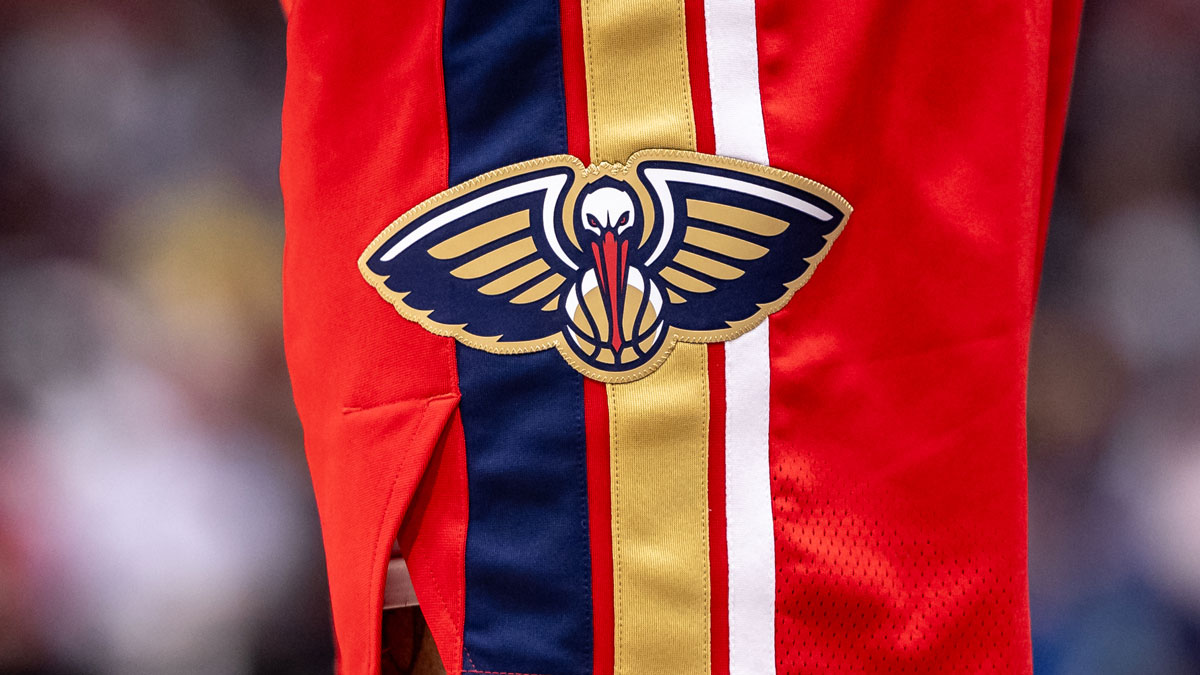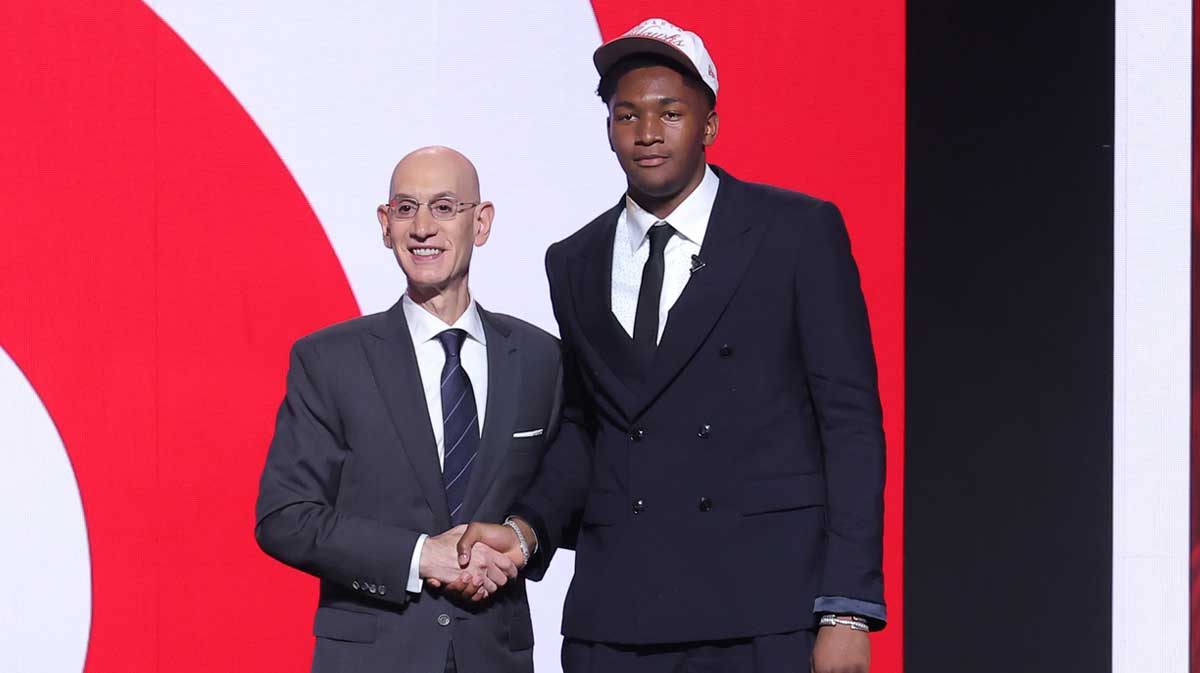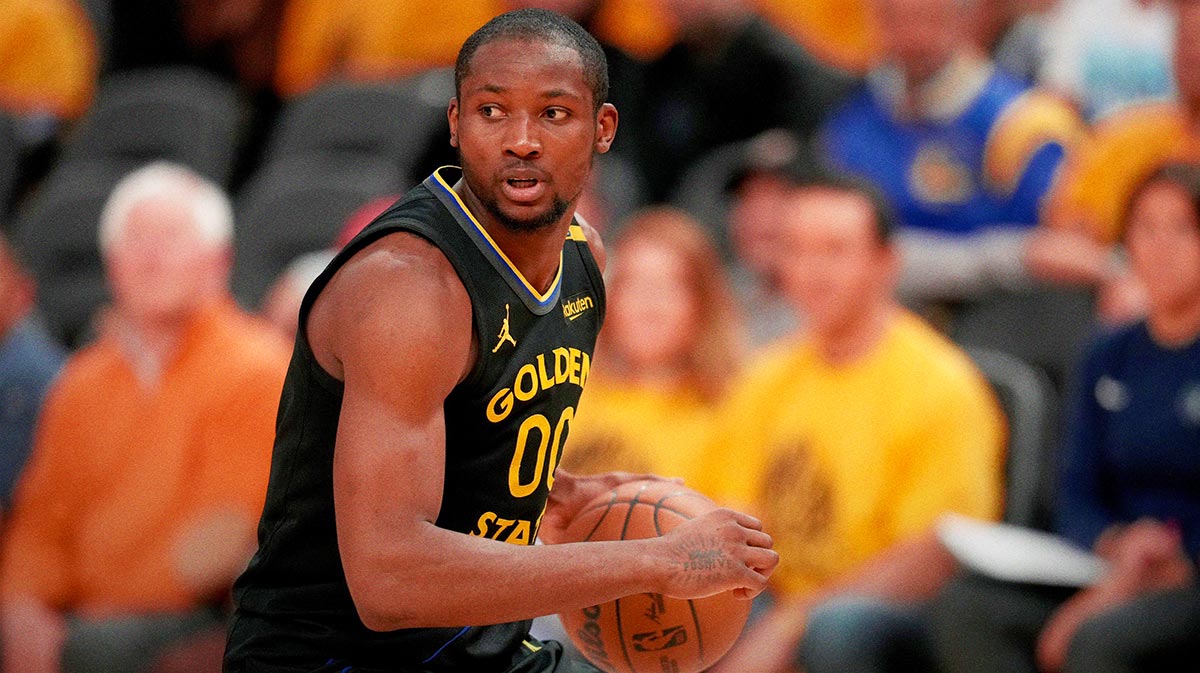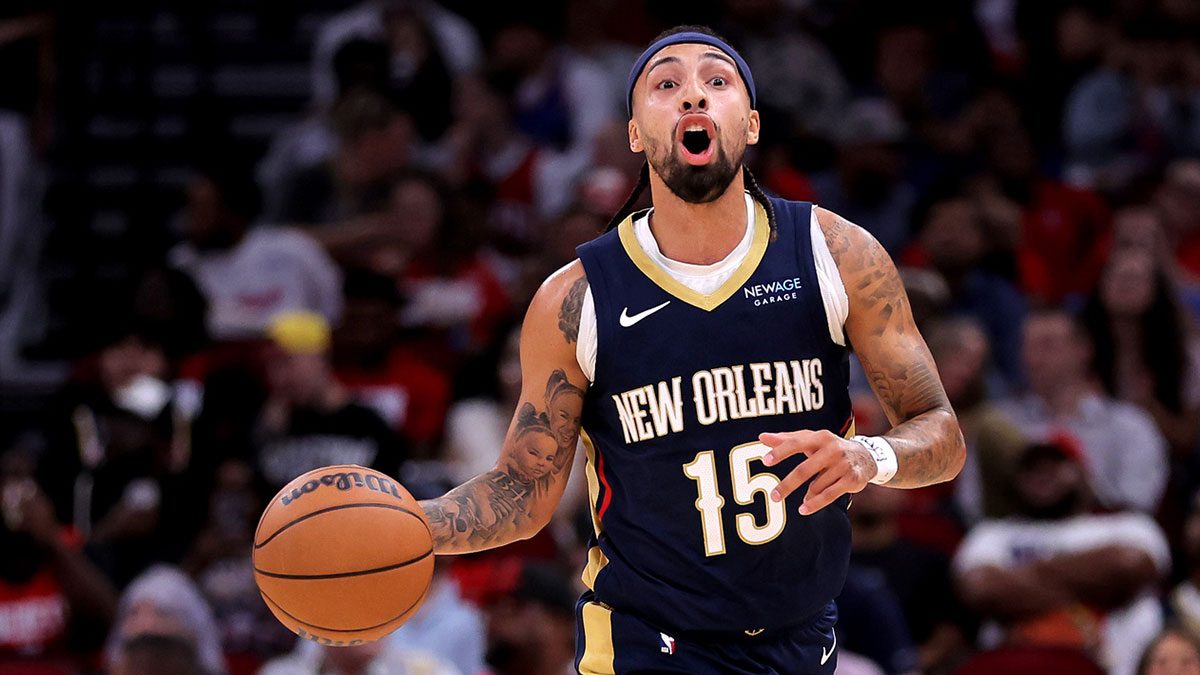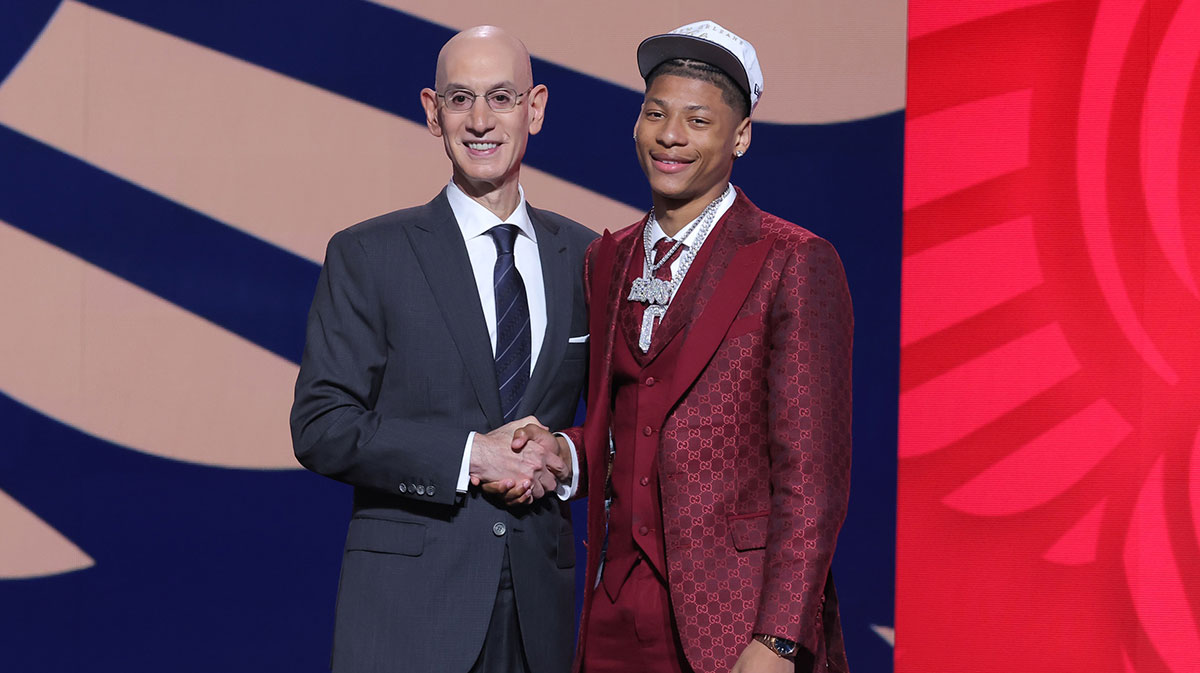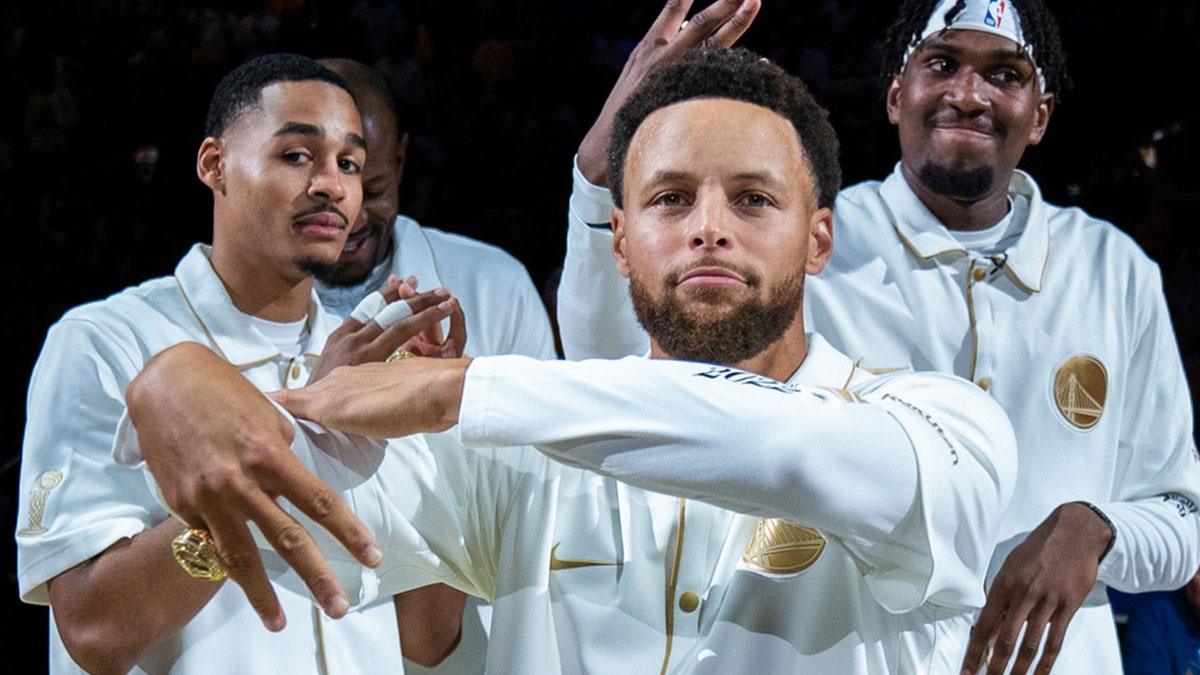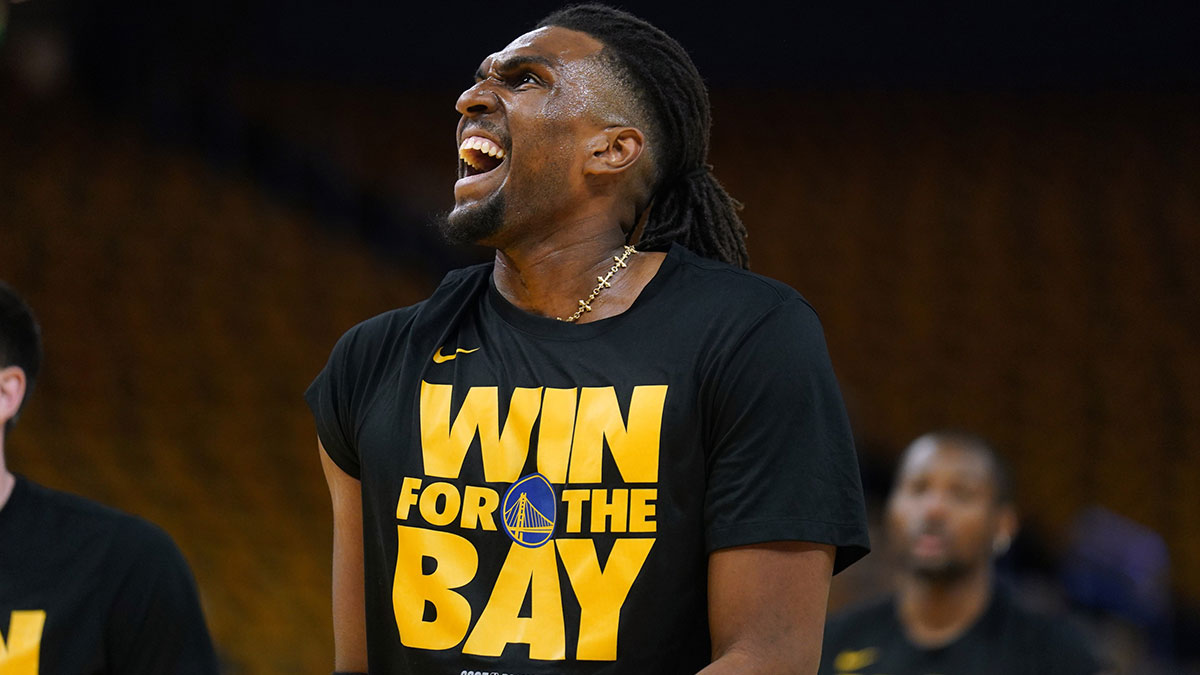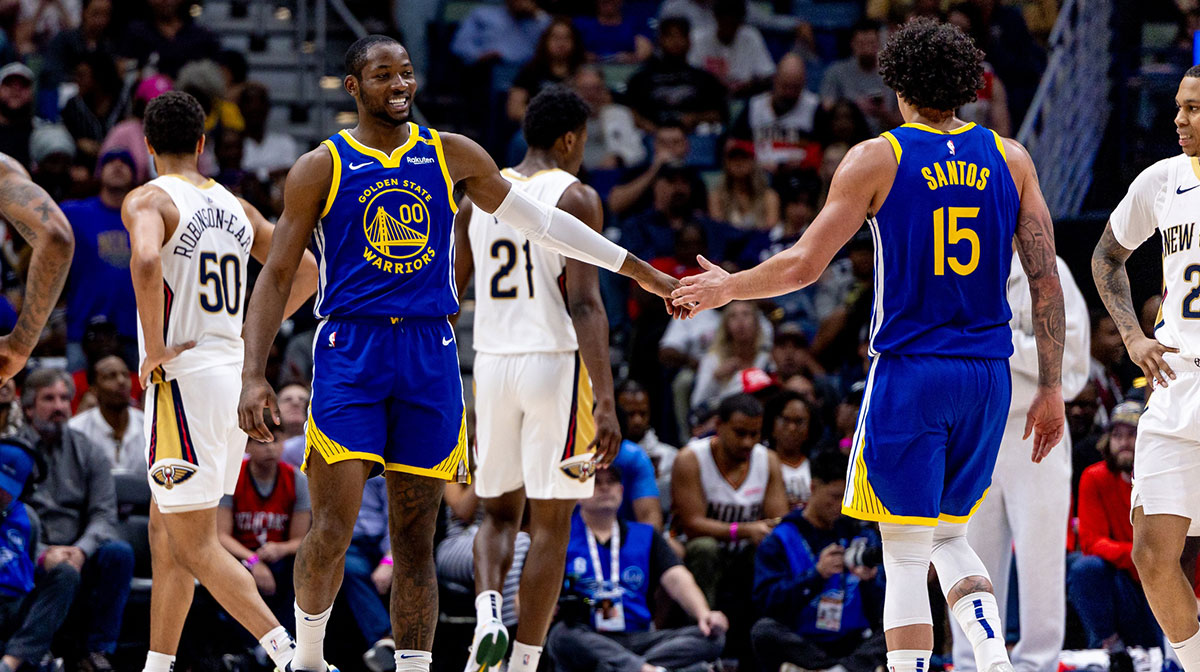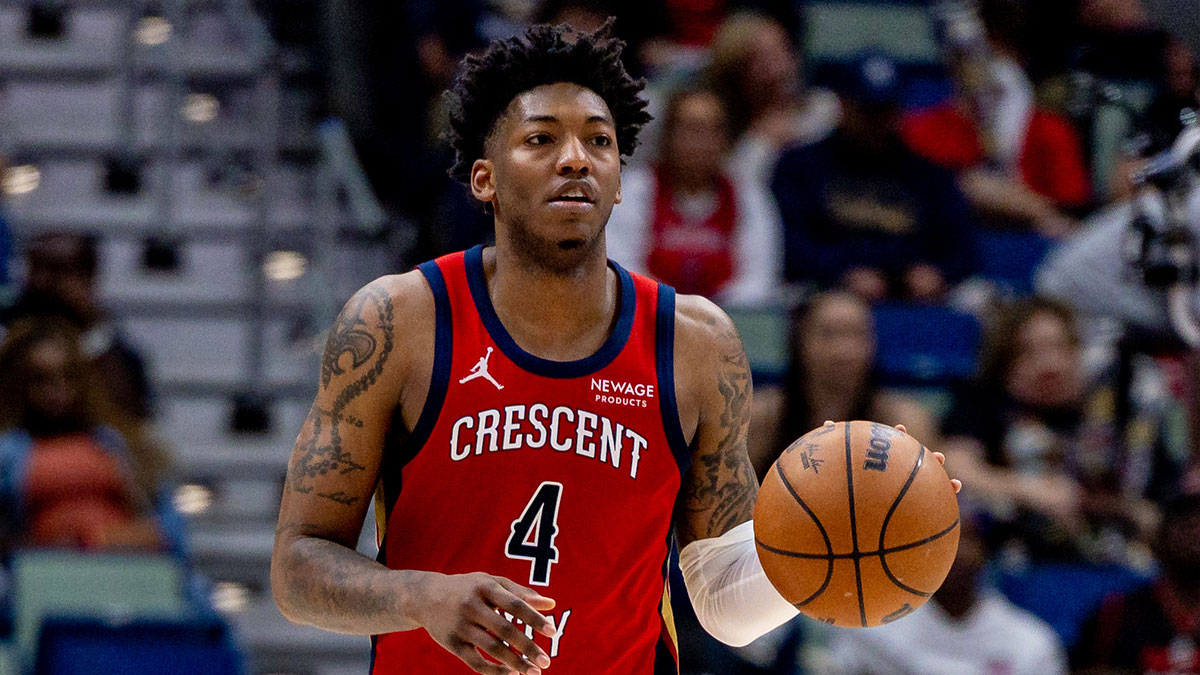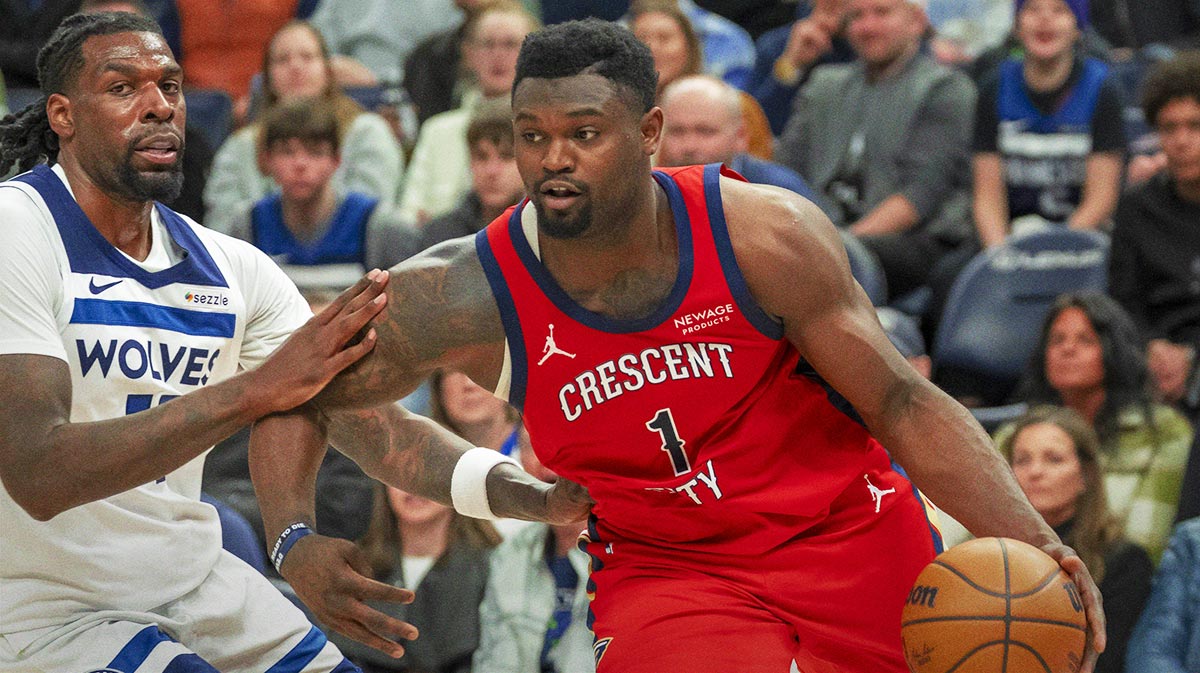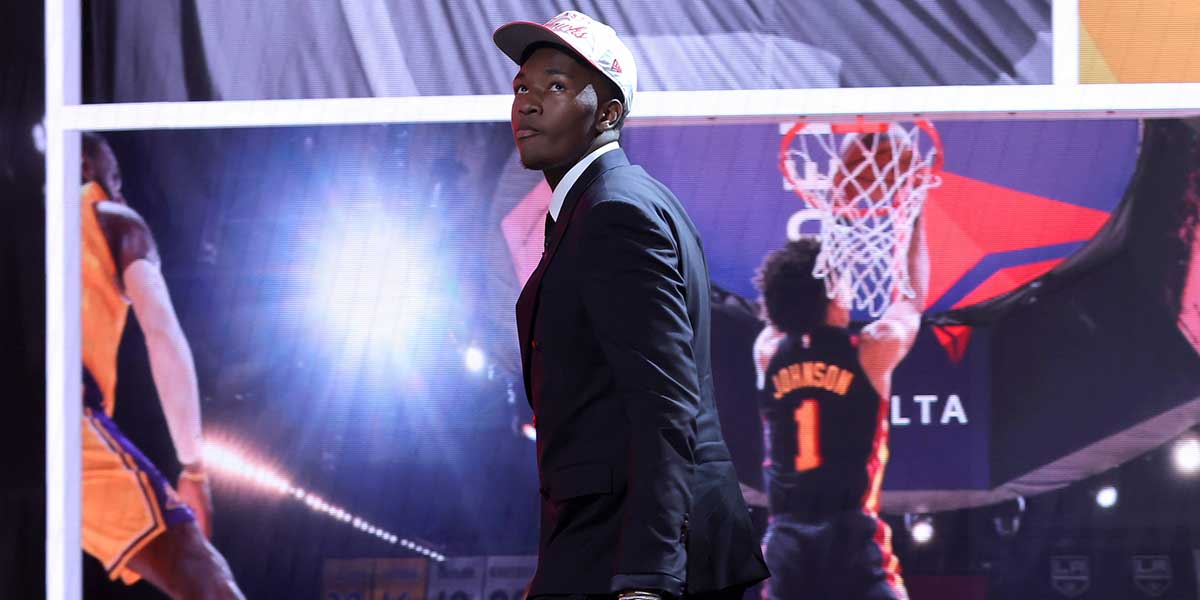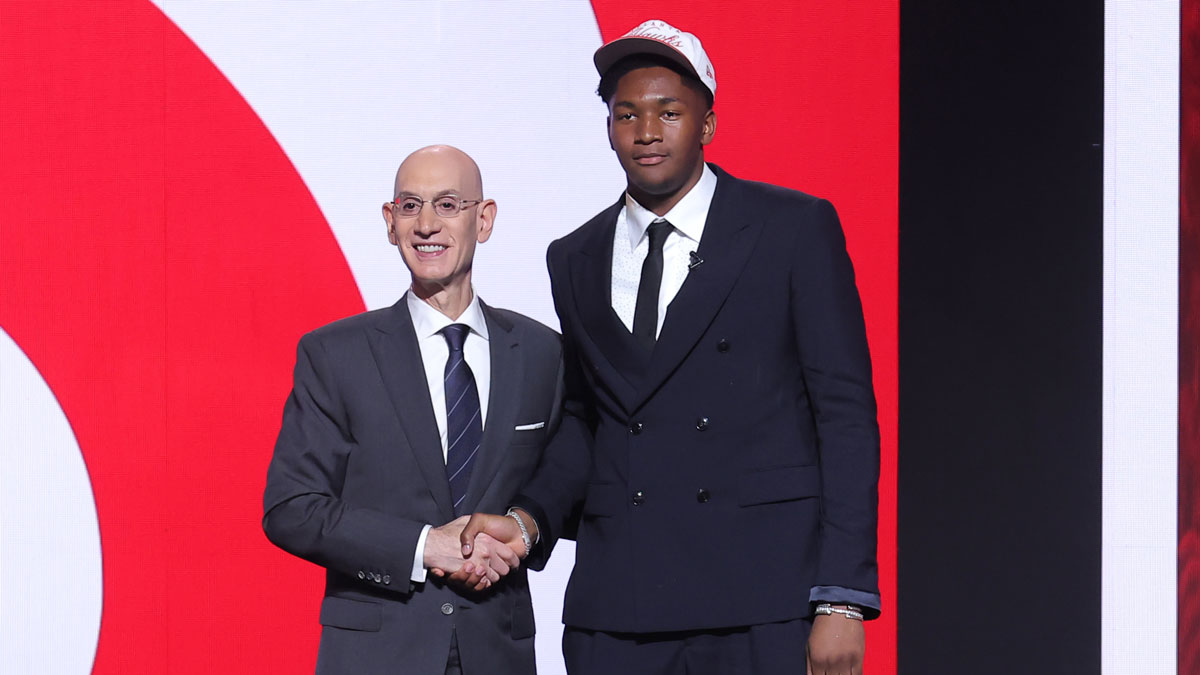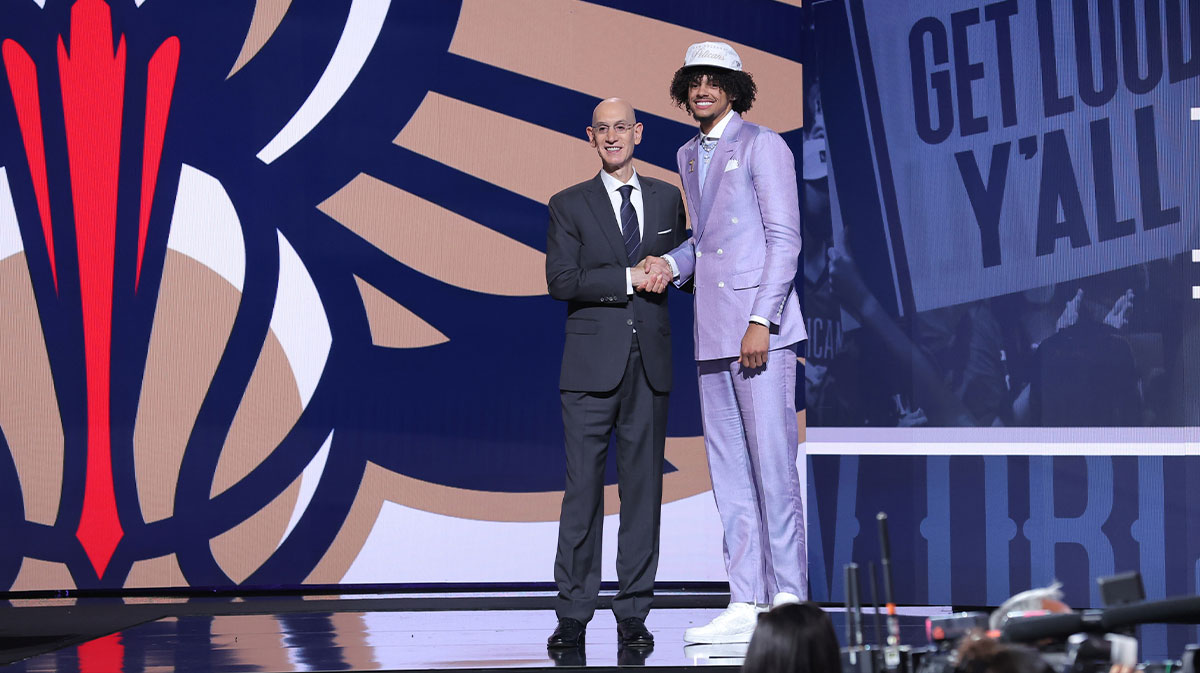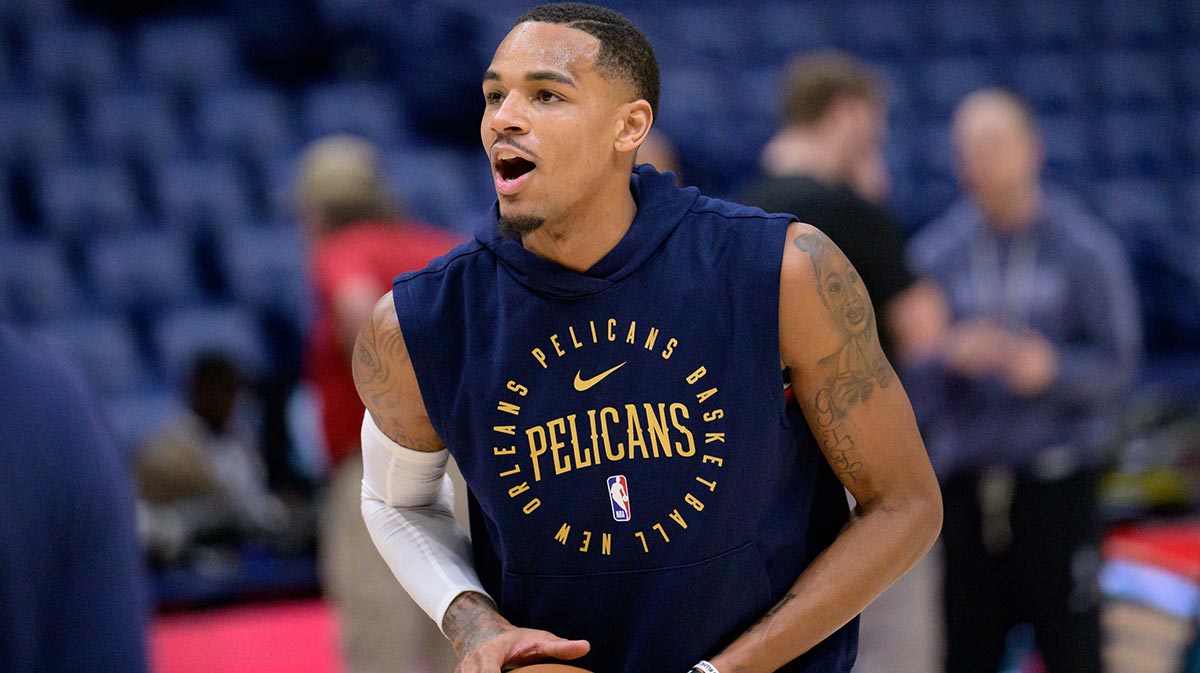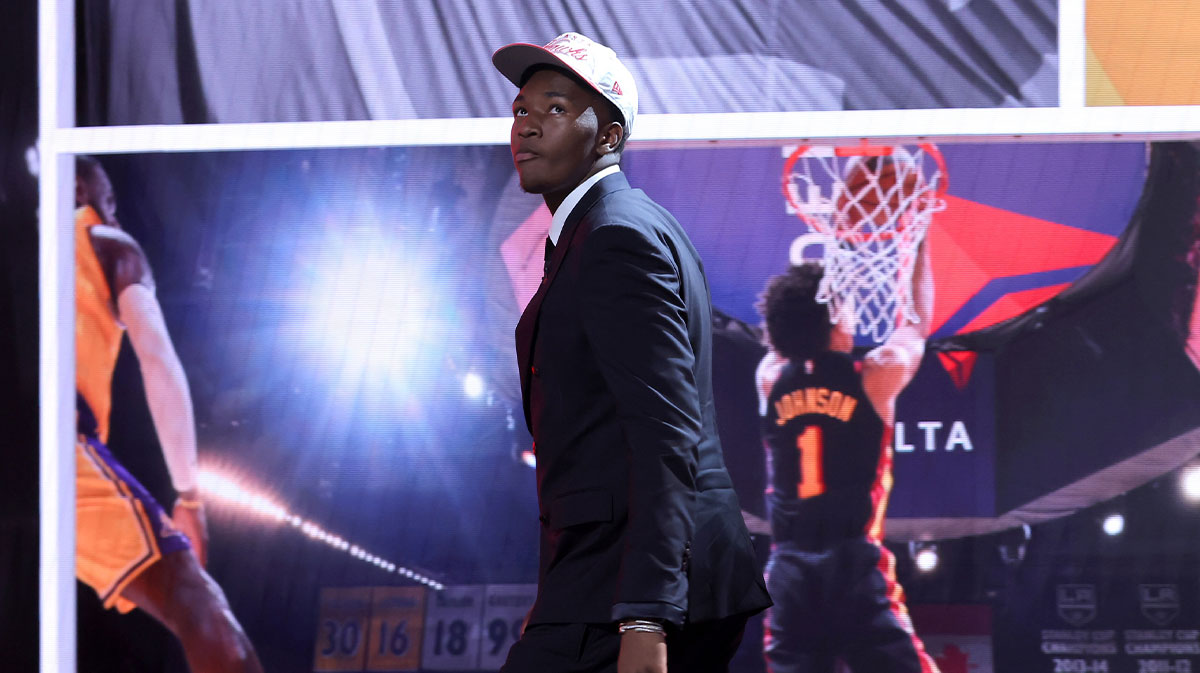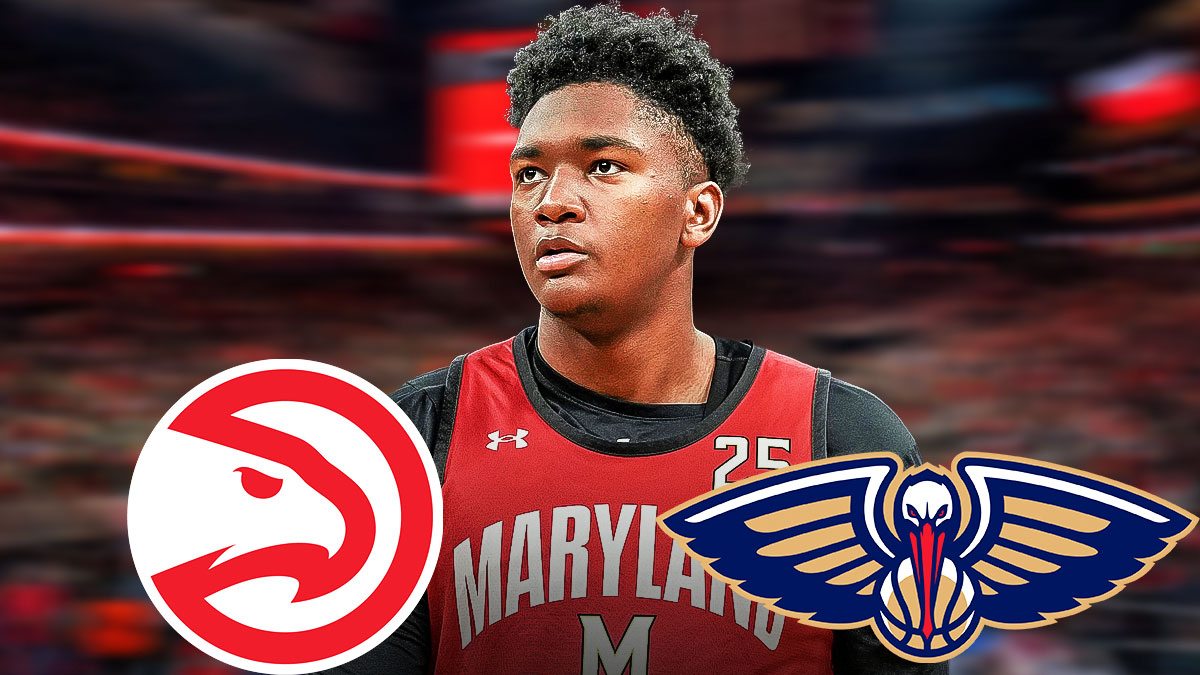Five years ago, former Philadelphia 76ers' general manager Sam Hinkie jumpstarted The Process with a draft night trade. It sent 23-year-old Jrue Holiday to the New Orleans Pelicans in exchange for newly drafted Nerlens Noel and a future first-round pick. Holiday had just earned his only all-star selection, leading the 34-win Sixers in scoring and assists.
Hinkie, however, did not want his first year on the job to be building from the pieces they already had. He smashed the reset button by sending Holiday, a budding combo guard, to aid Anthony Davis and eventually landing a stretch big in Dario Saric in the deal — The Sixers used the 2014 draft pick on Elfrid Payton, but then traded him to Orlando for the rights to Saric.
Immediately after the Holiday trade, though, Philadelphia selected Michael Carter-Williams in the 2013 draft. They had no idea what he would become, but hoped that he would fill in the gap as a floor general.
Now in 2018, it's clear the main premise of Hinkie's process has led to success, even if it took a few detours and speedbumps to get there.

Those speedbumps were clearly Noel and Carter-Williams, who now aren't members of the team. Carter-Williams was given a season and a half before management knew it may be a long-term disaster — and boy were they right, as he's shooting 33.2 percent from the field as a poor backup option. Noel was traded after 171 games, with the Sixers not wanting to invest in his future with the overload of big men they already obtained.
It worked out for Philadelphia, a franchise that is back on the map after a criticized rebuild. But, in hindsight, the 2013 trade could be viewed as an interesting “what-if.”
Because Holiday has turned into a complete boss.
His progression followed the usual roadmap we've seen from young point guards. Electrify for a year or two, hit somewhat of a wall, and use the experience and adversity to lift you to the next platform.
Holiday will turn 28 this summer, in that glorious sweet spot of a player's prime. Just finishing his ninth season, he had career-highs in true shooting percentage, total win shares (due to being healthy and, well, better), and finished seventh among all starting point guards in Real Plus-Minus.

He shot a mammoth 55.7 percent from inside the arc, deciding to attack the basket more and shooting a far smaller proportion of his field goals from three-point range. He was one of six guards this year to be that effective from two with a minimum of 500 shots attempted.
Aiding New Orleans to the six seed behind his defensive acumen and developed chemistry with Anthony Davis, Holiday finds himself in the mix of an unexpectedly lopsided Western Conference playoff series. Even better — he finds himself as the main reason it's a 3-0 Pelicans lead.
Notably, this is where most of the basketball world outside of New Orleans finds, and appreciates, Jrue Holiday.
This isn't Holiday's first playoff series since his Philadelphia days, but it might as well be. During the 2015 postseason, good fortune wasn't on his side. He had dealt with a stress reaction and soreness in his leg for most of the 2014-15 season, missing 42 games. While he was cleared for the three of the Pelicans' four games in the first round, it was evident he was far from healthy. Holiday played just 18 minutes a game, shooting 36.8 percent from the floor while having to chase around Stephen Curry and Klay Thompson defensively. Playing a 67-win top seed while nursing a leg injury is a series from hell.
In this matchup with Portland, the Pelicans are leaning much heavier on Holiday, who is able to give The Brow a bit more firepower than he's ever had in the backcourt. Holiday's usage rate after three games is 27.3 percent, a few notches higher than his 24.5 percent after Jan. 26, when DeMarcus Cousins went down with an Achilles injury. It's nearly at Davis's level of responsibility (30.5 percent usage).
Without Holiday being this aggressive offensively and taking advantage of “Playoff Rondo” as a playmaker, New Orleans would again be too predictable in a series. It couldn't just be Davis fighting off hoards of defenders.

Davis has always had a quality running mate in Holiday, it's just that we haven't seen this combination of healthy legs and prime, veteran experience from him. His growth has struck the Big Easy at the perfect time, in a year where their center misses half the season and the West is equal from seeds 3-8.
He's outplayed both Damian Lillard and C.J. McCollum through three games by a significant margin. His performance on both ends of the floor is why the Blazers are trailing 0-3, in a desperate position to avoid a sweep. New Orleans stayed true to its regular season road identity, as it was a top four defense and top 10 offense away from home.
Holiday's offensive production in the playoffs is just an extension from the season. He's 31-of-58 (53.4 percent) from the field in this series, but it's how — and where — he's getting most of his shots that remains important. The three-pointer is still streaky, with him only connecting on 5-of-13 from the outside after tying his career-worst percentage from deep in the regular season.
His innate strength as a scorer has always been at the rim. Portland, a surprisingly competent defense this year, knows that, and still can't limit him.
In the last three years, Holiday's finishing touch at the rim has catapulted to superlative heights for a player his size. Entering the season with a roster that was supposed to have zero spacing and playing with twin towers inside, he still increased his efficiency near the basket by over seven percentage points. Crafty Stephen Curry of the Warriors' spread-eagled offense shot 66.9 percent from 0-3 feet, while Holiday finished at a nuclear rate himself:

His effectiveness in the first three categories (rim, short mid-range, and long mid-range) were all in the 93rd percentile or better this season among point guards, per Cleaning the Glass. On shots in the short mid-range, usually runners and floaters, he was in the 95th percentile. While he is classified as a combo guard this season due to sharing a backcourt with Rajon Rondo, he has naturally played most of his career minutes at point.
Against the Blazers' defense, he's producing points inside at will. He he only missed six shots in the restricted area, but the attempts are what should drop your jaw here. Literally half of his attempts in this series are coming at the rim, versus the 30 percent frequency mark he had during the regular season. His average shot distance is only 9.6 feet, and that's for a guy that loves to let it fly from deep when he has space out of pick-and-rolls.
His versatility allows for him to read scenarios a lot better (and quicker) than he did in the past. That simply comes with experience once you're close to the 10-year mark. Holiday is serving as one of the prominent examples of just how long it takes to master technique in the NBA.
Although, Portland isn't offering enough resistance on the perimeter — or inside — to make these decisions hard for him:
https://streamable.com/wb08p
Shooting over 70 percent near the basket in this series, Holiday is generating offense with and without Davis involved. Alvin Gentry can adequately get Davis a few minutes of rest without worrying about everything falling apart. In all three plays shown above, Davis was on the bench while Holiday orchestrated actions through pick-and-roll, or just attacking the middle of the floor because nobody stayed in front of him.
When a player has more than 600 games under their belt, their mentality changes. The game slows down for them. Mistakes that used to be made are weeded out. Reads that weren't always visible until the next day in the film room are suddenly highlighted in bright yellow when they encounter similar situations.
For Holiday, his patience has reached a new layer. Hardly anyone would think of his name when writing down the most intelligent operators in the pick-and-roll, but they should. It doesn't always point to the passing, either. His scoring decisions have opened to a broader level, which allows him to stay calm and poised in these situations:
https://streamable.com/41r8w
Holiday has more than a sufficient ability with his left hand, and a variety of bail-out moves when he gets deep in the paint, particularly the jump-hook, which is textbook due to his balance of planting both feet before lifting. Think of Mike Conley's floater, but turning over a left or right shoulder.
Having time to hone his skills in the league, he's become deadly with “putting the defender in jail.” When attacking off a screen in Game 2, he had various Portland guards stuck on his back while he forced an extra defender to step in front of him. This opens so much for his game, as well as his roller (often Davis) and weak side shooters:
https://streamable.com/n3cv0
Holiday didn't score a high number of points per possession off pick-and-rolls during the regular season (0.88), mostly because he passed out of a lot. But, he did rank fourth of all point guards in raw field goal percentage when he decided to score out of them. He shot 47.5 percent in these scenarios, behind only Kyrie Irving, Chris Paul, and Reggie Jackson. The patience to be able to find open seams in the defense, which includes taking your own defender out of the play by putting them in jail, is an important discovery for him.
What really matters about his development for New Orleans, however, is the defensive tenacity and awareness.
Gentry always loves to praise his players with league-wide perspective, so it was no surprise when he labeled Holiday as one of the best “two-way players” in the league. Whether or not you despise that term for as much as it's thrown around now, the premise is intriguing. Gentry definitely has a sound point. It becomes difficult to find players at his position (point or combo guard) that put as much whole-hearted effort into each possession.
After all, nobody covered more miles defensively — at any position — than Holiday's 1.24 per game this season. It was more than Paul George, Jimmy Butler, and Victor Oladipo, three guys tasked with covering the top perimeter option on a nightly basis. What makes this matchup with Portland so intriguing is that it places the backcourt pieces that rank first and second in distance traveled offensively (Lillard and McCollum) with someone that takes pride in locking down those type of animals.
While he doesn't strike most people as a terrific defender, he falls more in line of the Chris Paul archetype — making the fewest mistakes possible with rotations, knowing what zones to be in on certain coverages, being very selective with gambling and reaching, and forcing ball-handlers into unfavorable spots.
Defenders that are too feisty will often get into foul trouble or allow their man into the paint by overplaying them. Holiday is in the group that makes it feel like you're dribbling your way to hell for 10-15 seconds, burning the shot clock. He has a solid mixture of knowing when to use his hands, and when to only use his feet:
https://streamable.com/6xfu4
Lillard has shot 4-of-24 with Holiday as the primary matchup through two games, per NBA.com. That doesn't only mean Holiday has forced him into 24 misses. A lot of possessions end with your primary defender a few feet away due to screens or other randomness. Lillard has also missed wide-open looks, which aren't directly because of Holiday. But, it's by far the most frightening defensive matchup efficiency in this series so far.
A better indicator of how much New Orleans' defensive pressure — particularly from Holiday — is affecting the Blazers' system is on a per-100 possession basis.
In Game 1, Holiday was recorded as the primary matchup on Lillard for 37 possessions. Portland only scored 37 total points on those.
In Game 2, the possession total dropped to 27. But, the Blazers scored even less with Holiday on Lillard, coming away with 23 points.
Oddly enough, Game 3 was the blowout loss, but Portland managed 29 points on 27 possessions.
That's an efficiency of 97.8 points per 100 possessions, which is outrageous in every sense. The worst offense in the league usually scores around 99-101 points per 100.
Holiday doesn't even need to be aggravating players on-ball. He is so aware of what's going on everywhere on the court, he can properly get to the places he needs to in a hurry. All the time, we talk about how offensive players in this league dictate the movements and choices of the defenders. Holiday is reversing it on Portland:
https://streamable.com/aoy3z
With Patrick Beverley missing most of the season, voters had tough choices to make regarding the All-Defensive teams. Holiday hasn't really sniffed anything close to these honors in the past, but the improvement on both ends this season warranted recognition. First Team may not be in the cards since a lot of voters probably forgot about him before the ballots were due. But due to the Pelicans' incredible second half of the season, there is no universe this year where he hasn't earned a Second Team selection.
In the regular season, Holiday was credited with finishing 515 possessions as a pick-and-roll defender, specifically on the ball-handler. He allowed his assignments to shoot 35.5 percent while operating in pick-and-roll, the lowest efficiency of anyone with at least 300 possessions defended (per NBA.com).
This wasn't a Lillard pick-and-roll from Game 3, but it does illustrate precisely how Holiday and the Pelicans are making life difficult for Portland's marquee talent. Look how Holiday moves his feet to the right, preventing Lillard from beating him on a drive, and then quickly pivots left to protect the spin:
https://streamable.com/eqdw1
Lillard does get to the area he likes, but Holiday is glued to his hip. It's also an example of what the Pelicans have decided to do with Davis — playing him as more of a “free safety” that can roam the paint, since he's guarding Al-Farouq Aminu. Well, he's not really guarding him, and that's the point. Until the Blazers' role players proved they could consistently make shots (or that Lillard would be able to find them without being suffocated), New Orleans has put all of its focus on shutting down the ball-handlers.
Holiday is not exactly blowing you away in the steals category, mostly because he practices that same level of patience defensively. He would rather force you into a low-percentage shot, or feed you to the jaws of Davis, rather than gambling. However, you can't find five guards with quicker hands than his. When he does strip you clean, it looks eerily similar to how Kawhi Leonard snatches souls:
https://streamable.com/1w4li
Notice how alert and hungry Holiday was when Lillard started his action? He face-guards him, staying balanced and aware of which side Lillard is flaring to. Then, upon turning, he avoids the Nurkic screen by slithering around it like a snake, and essentially gets to the corner at the same exact time Lillard catches it. He's always within breathing room.
From November to April, it was clear that Holiday had something to prove defensively. He showed why he belongs in the discussion with Paul, Beverley, Josh Richardson, and other deserving guards for the All-Defensive team. For the entire season, the Pelicans had a defensive rating of 103.2 with Holiday on the floor — already a top 10 mark, while the bench cost them a lot of points. Since the All-Star break, however, that defensive rating dropped to just 100.4 with him in the lineup.
Now, everything is carrying over into the postseason, against a fragile team that isn't your typical three seed.
For championship teams, “peaking too early” is often used during the dog days of the season. For fringe playoff teams, such as the Pelicans, the hope is that they find some resemblance of their peak in the first round. They seem to be reaching it, as high as it can be without its second-best player healthy.
If Holiday and company take care of business in Game 4, they'll have a measuring stick series with the defending champs in the second round. Perhaps his efforts will be amplified even more.

